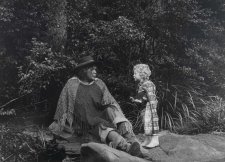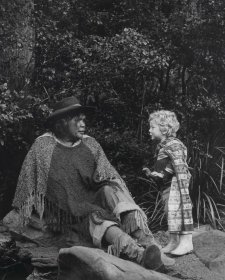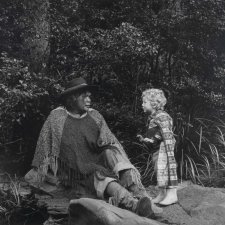Essie Coffey OAM (1940-1998) was a community worker, singer, actor and film-maker. Born Essiana Goodgabah, she is a member of the Muruwari people of north-western NSW and southern Queensland. As a child she narrowly escaped being forcibly placed on a reserve, and her father brought the family up in a series of rural communities, moving around the country to follow seasonal work. In the 1950s Essie settled with her husband Albert 'Doc' Coffey in the NSW outback town of Brewarrina, where the couple raised 18 children, 10 of them adopted, and where Essie became a driving force in the town's Aboriginal movement, earning herself the affectionate title of "Bush Queen of Brewarrina." She co-founded the Western Aboriginal Legal Service and was an inaugural member of the National Council for Aboriginal Reconciliation. With Martha Ansara she made the award-winning 1978 film My Survival as an Aboriginal - a copy of which she presented to the Queen in 1988, at the opening of Canberra's new Parliament House. The film's sequel, My Life as I Live It, appeared in 1993. After refusing an MBE on the grounds that she was "an Australian not a member of the British Empire," Essie Coffey was awarded an Order of Australia medal in 1985 for her services to the Aboriginal Community.







